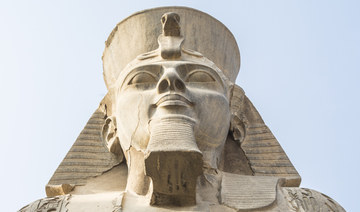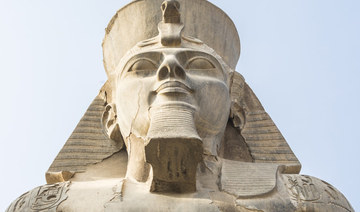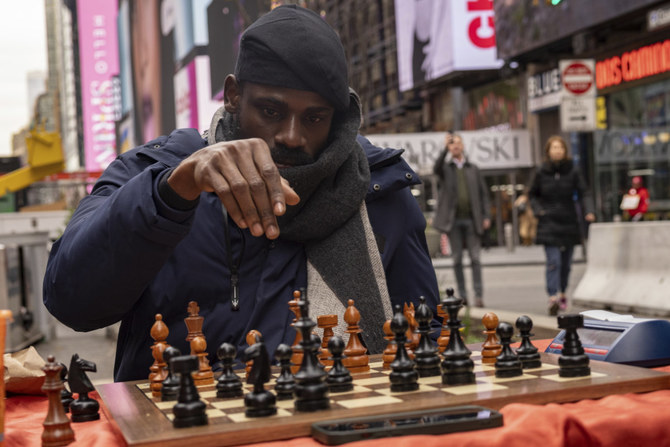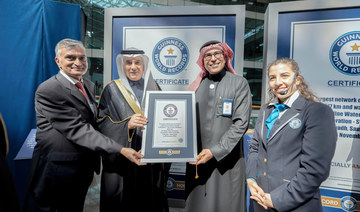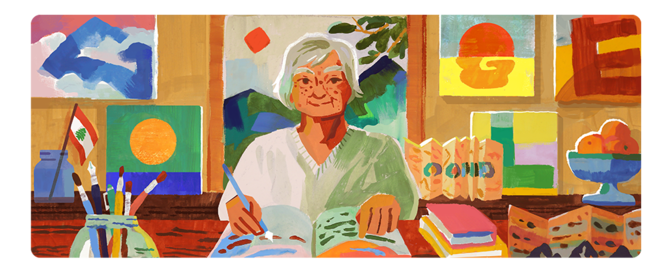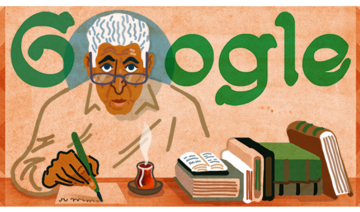LONDON: It’s a puzzle. Or should that be “buzzle”? After 60 years, the International House of Pancakes restaurant chain is changing its acronym from IHOP to IHOb. But they haven’t yet said why.
Cue widespread consternation — and quite a few jokes — all over the Twittersphere… except among pancake-loving Arabic speakers.
For them, this is old news. Arabic has no “p” sound, and speakers of the language usually substitute a “b.” In the Arab world, IHOP has been IHOB ever since the first pancake — sorry, bancake — house opened in Dubai in 2012.
IHOP announced the change (they called it “flipping” the name) on Monday but will not reveal the reason for it until June 11. In the meantime, Twitter has gone into hyper-buzz with tweeters of Arab background supplying most of the wit.
“Did an Arab person take over IHOP?” asked Fatima Syed, a reporter on the Toronto Star newspaper. “I ask as someone who for years was known as the girl from ‘Bakistan.’’’
Ala’a Ibrahim pointed out that Arabs also love to eat in Bizza Hut and Bopeyes, no doubt washing down their food with cans of Bebsi.
“My beoble have taken over IHOB so much, they changed the name to something we can bronounce!” tweeted Mohamed El Dahshan.
Breakfast and brunch are among the suggestions for what the “b” might stand for, along with the more fanciful broccoli, biscuits and even barnacles. IHOP’s popularity in the Middle East led one Twitter user to suggest that since “hob” means “love” in Arabic, therefore “Ihob= I love (pancakes).”
Hob also means the top of a stove, the hub of a wheel or male ferret — none of which seems pertinent, or even bertinent.
IHOP also joined in the fun, tweeting: “The blot thickens.”
When a tweeter named Patrick asked for an explanation, IHOP replied, “Batience, Batrick, batience!” and tweeted an audio guide “to helb you bronounce it broberly.”
The first IHOP in Dubai in 2012 was followed a year later by restaurants in Saudi Arabia and Kuwait, then Bahrain and Lebanon in 2014.
From a business perspective, the name change makes little sense. The brand is well established and very well-known, sales are doing well and shares in parent company Dine Brands are up nearly 25 percent.
Changing the signs and menus at nearly 1,800 IHOP restaurants is expensive and risky. Studies have shown that brands which change their names typically experience an immediate 5 to 20 percent drop in sales.
IHOP’s only comment is a statement from Stephanie Peterson, the company’s executive director of communications, which said: “We’re serious about the quality of food and our menu, and this name change really reflects that.”
A search for IHob.com domain name reveals it is “data protected” and registered by someone with 123 Data Protected, Toronto as an address, and the email address [email protected]. Emails sent there bounce back as undeliverable.
All of which could mean one of two things: IHOP have really flipped and this is either a blea for attention or a massive brank.







